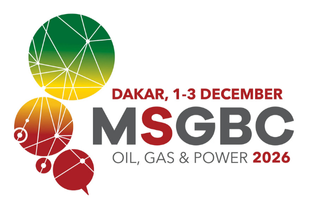Africa Fortesa Corporation Advances Senegal’s Energy Security through Onshore Gas Development
While these deepwater offshore projects attract international attention for energy exports, the onshore sector holds untapped resources that could contribute to Senegal’s domestic energy needs. Operator Africa Fortesa Corporation has been developing the onshore Gadiaga Field since 1997, building on a small gas discovery by PetroSen in 1996. The producing field has generated over $100 million in natural gas gross revenues from a $50 million investment in drilling. While further exploitation of Gadiaga may offer limited returns, Africa Fortesa Corporation is focusing on new onshore exploration prospects, particularly within the Diender Exploration Permit, for which the company has high hopes for future commercial discoveries. Additionally, Fortesa has successfully recovered oil under the Gadiaga Field sourced from Early Jurassic marine source rocks and also believes they have identified mature onshore Permian source rocks with significant gas reserves possibly recoverable due to a Triassic Rift zone.
Speaking to Energy Capital & Power, Rogers Beall, Executive Chairman of Africa Fortesa Corporation, pointed out that onshore exploration in the MSGBC Basin requires a different approach due to the complexities of the terrain and the compartmentalized nature of the reservoirs. "Drilling these hydrocarbons in commercially reachable reservoirs will take some ‘high-risk’ wildcat drilling that Fortesa is now prepared for," he added.
Drawing on its extensive experience, Fortesa identifies the central section of the MSGBC Basin in Senegal as a proven “Super Giant Petroleum Province” with an estimated >10 billion barrels of recoverable oil and equivalents from multiple mature source rock packages. Regarding natural gas, based on its permits, the company estimates that the Senegalese onshore reserves most-likely hold 667 billion cubic feet of recoverable gas and equivalents, complementing known offshore reservoirs being now developed in the MSGBC Basin.
Fortesa believes that these onshore reservoirs could hold enough gas reserves to meet Senegal's present gas-to-power needs for a decade. Exploiting these resources offers significant benefits, particularly for boosting domestic production to fuel gas-to-power initiatives making Senegal more competitive in energy costs and value-added industries. Beall emphasized that the priority should be reducing the country's reliance on imported fuels and lowering electricity costs with Senegalese domestic fuel production to complement Senegal’s already strong renewable power production.
"Onshore oil and gas production should help cost-effectively develop Senegal’s economy, reduce electricity costs and increase power availability for the c. 30% of the Senegalese population presently without access to electricity," Beall said. He added, "Africans must work together to bring affordable power to our people. Why are we paying three times more for power than Americans? We want to be paying a third of present power costs."
Strengthening Local Content and Regulatory Frameworks
A crucial factor in advancing onshore gas exploration for domestic use in Senegal is the regulatory environment. The new 2019 Petroleum Code, designed to build on the very successful 1998 code, introduced transparency, higher government take and local content requirements. However, it could now be refined to attract more investment missing since 2019. Beall suggested, “The government might consider lowering entry costs, rationalizing operational and administrative barriers and addressing above-ground risks to enhance investment in Senegal’s onshore sector for the benefit of all-concerned.”
To address the regulatory framework issues, Senegalese President Bassirou Diomaye Faye established a commission of legal, tax, and energy sector experts in August 2024 to review the country's oil and gas contracts and work toward rebalancing them in the national interest. Success from this negotiation could mark a first step toward strengthening local content in Senegal's energy sector enterprises, a goal shared by Africa Fortesa Corporation, which includes more Senegalese private investors helping to fund drilling campaigns. "Our goal is to involve Senegalese Private Investors in owning a share of the revenues and cash flows as we convert idle resources into producing reserves," emphasized Beall.
Additionally, Beall called for the development of more indigenous oil and gas operators to invest in the MSGBC natural resources. “Africa’s onshore hydrocarbon industry holds potential, but unlocking it requires a unified approach through Pan-African investment,” he opined.
In Senegal, foreign investments in gas and oil resources, such as the GTA and Sangomar fields, are primarily aimed at exports to Europe, as demonstrated by Sangomar's first oil shipment to Italy. According to Beall, as a result, even if a country exports its gas at a slightly higher price in the short term, those revenues don't fully benefit the local industry, population, nor develop the economy. Therefore, domestic gas production for domestic consumption might offer a more viable solution to enhance energy security and true development within the country.
"We Africans must lead the development of our own energy sectors rather than depending on outsiders. To achieve true economic independence, Africans might better focus on energy self-sufficiency leading to then ability to invest in sectors like fertilizer production, agriculture, water desalination and local industry —all of which require energy. Genuine autonomy is realized when a nation can sustain itself and grow the economy without external reliance," concluded Beall.
Explore opportunities, foster partnerships and stay at the forefront of the MSGBC region’s oil, gas and power sector. Visit www.msgbcoilgasandpower.com to secure your participation at the MSGBC Oil, Gas & Power 2024 conference. To sponsor or participate as a delegate, please contact sales@energycapitalpower.com.

